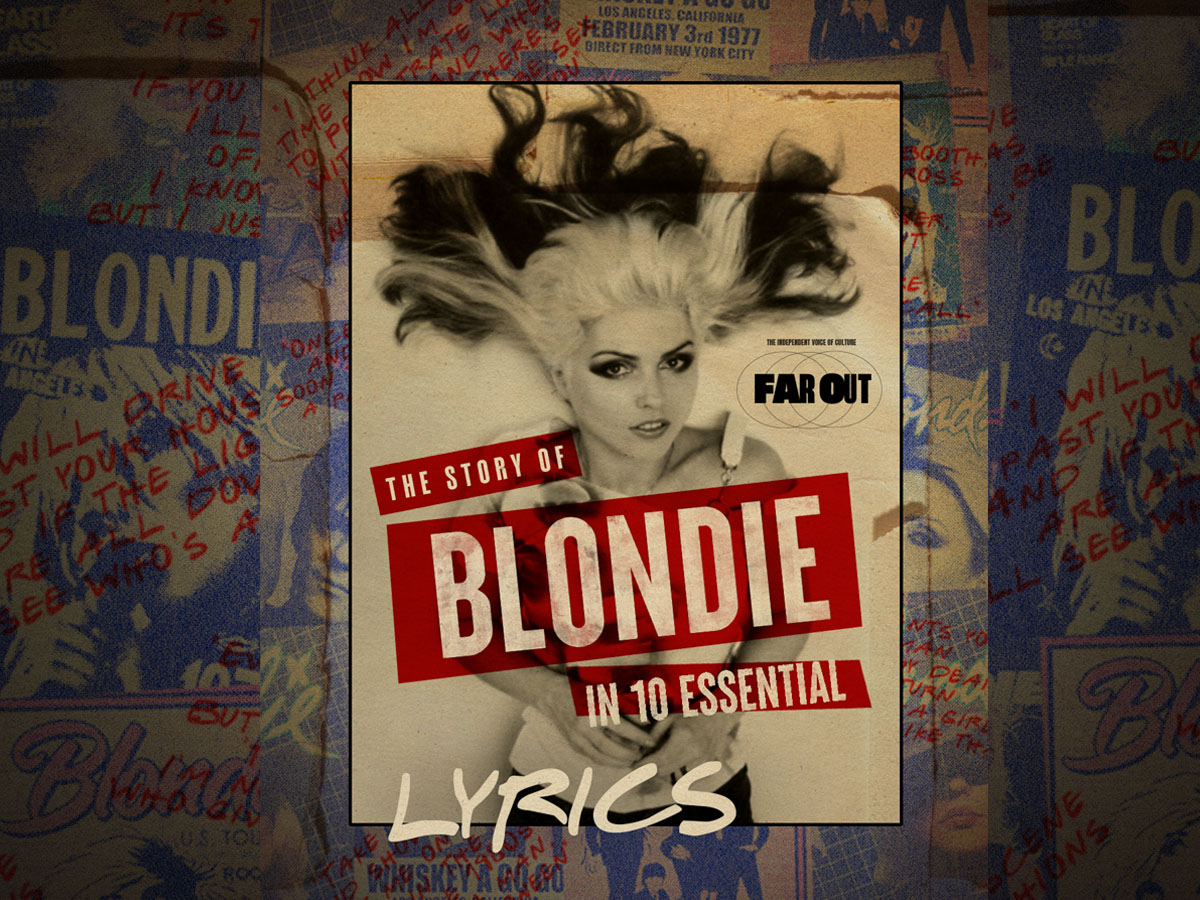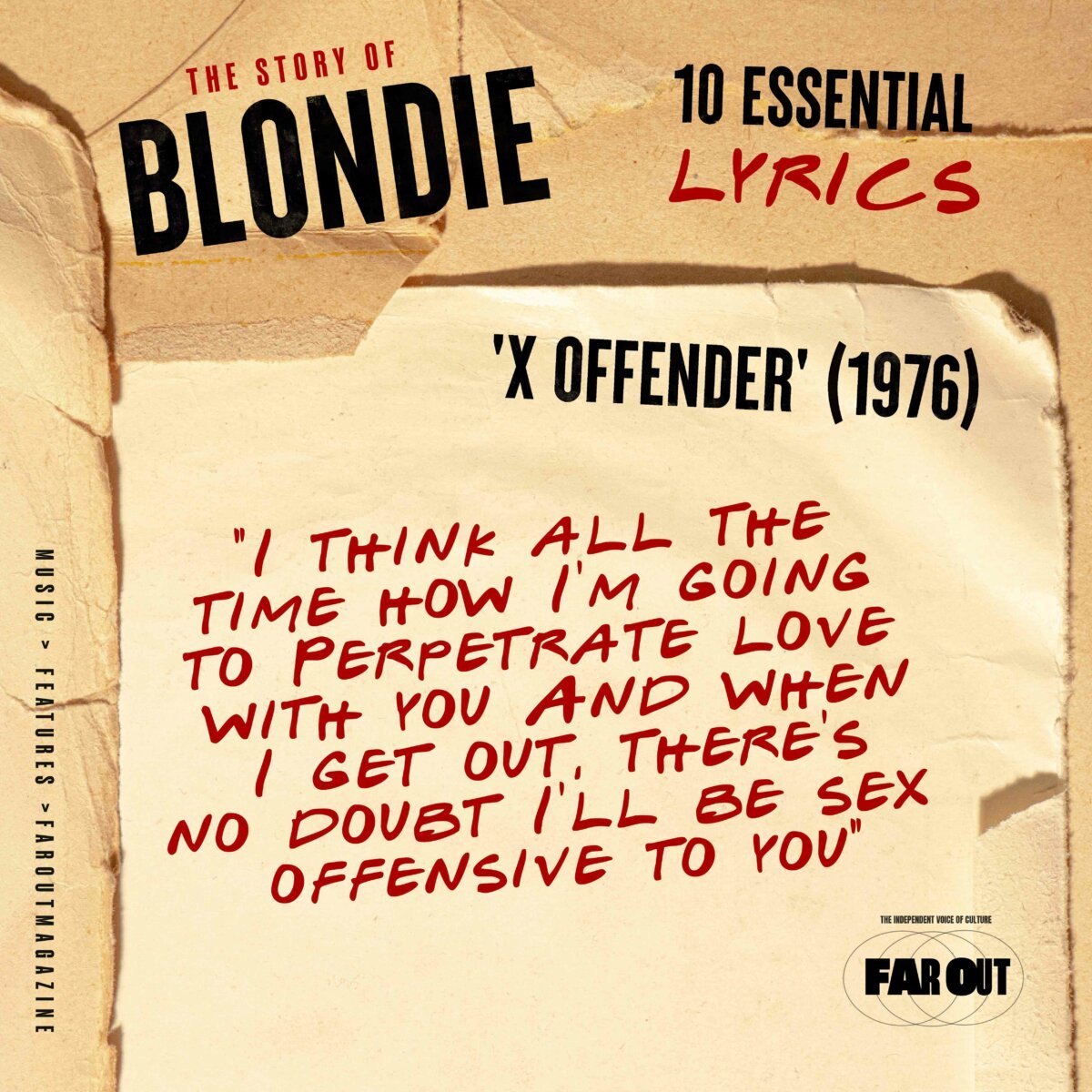
“I think all the time how I’m going to
Perpetrate love with you
And when I get out, there’s no doubt
I’ll be sex offensive to you”.
We’re going to start with where Blondie themselves started off, ‘X Offender’, not just because it’s their debut single, but also for a more complicated reason. You see, the band didn’t quite start fully formed. Quite the opposite, in fact. They might have been a part of the same CBGBs scene as Talking Heads and Ramones, but even by the standards of New York punk bands, they were a joke, and a bad one.
It wasn’t just the rampant misogyny of the time, either. The band were amateurish, unambitious and had a bad habit of writing songs like this. Under its original title, ‘Sex Offender’, bassist Gary Valentine told the story of an 18-year-old boy arrested for sleeping with his underage girlfriend. I can’t stress enough how this was considered a turning point for the band, so one can only imagine how bad it was previously.
‘In the Flesh’ (1976) 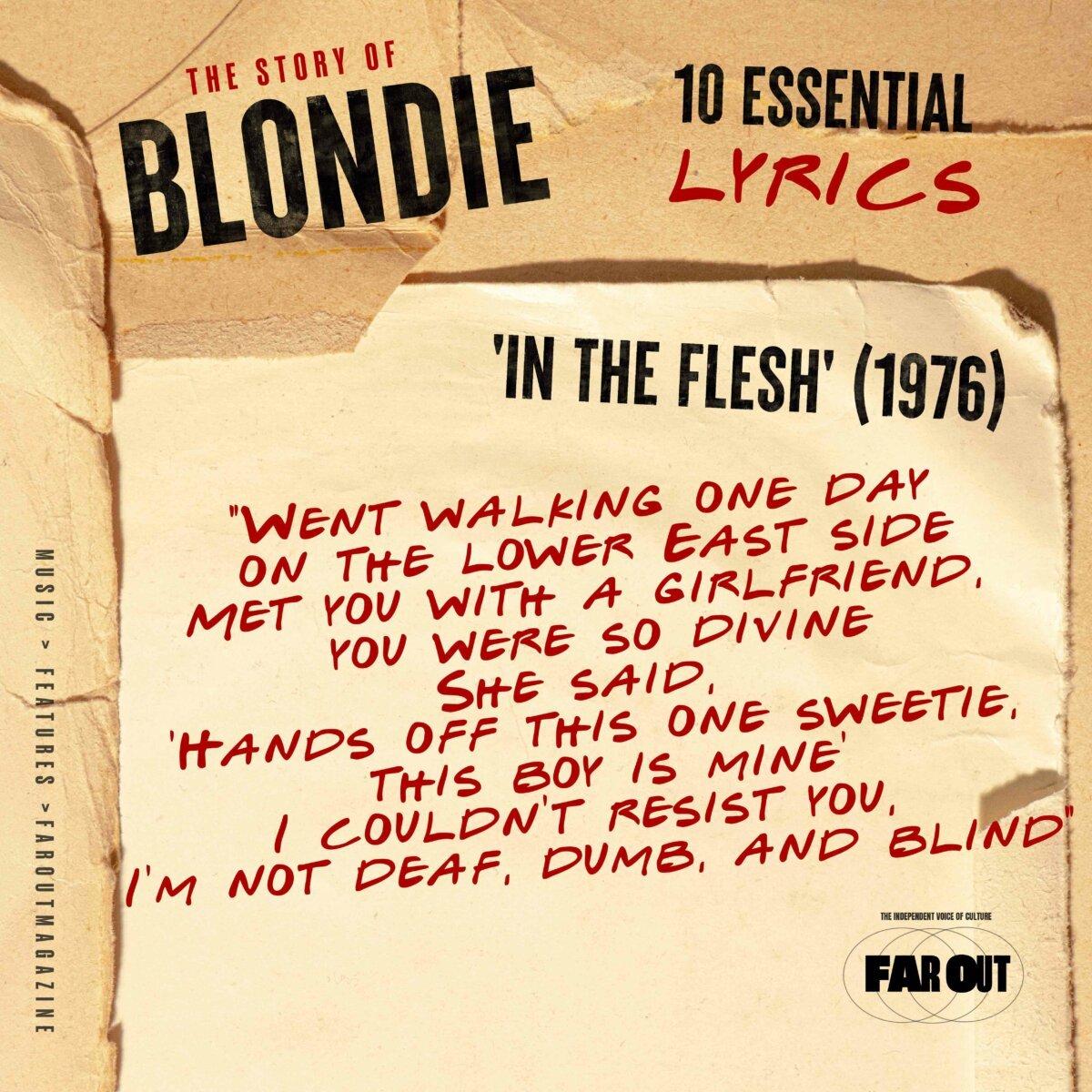
“Went walking one day on the Lower East Side
Met you with a girlfriend, you were so divine
She said, ‘Hands off this one sweetie, this boy is mine’
I couldn’t resist you, I’m not deaf, dumb, and blind”.
You wouldn’t have known it to look at her, but Debbie Harry had a few more miles on the clock than most people in the New York punk scene. She was already pushing 30 by the time Blondie got together, so when they put down ‘In the Flesh’ – a song influenced by girl groups of the early 1960s like The Ronettes and The Shirelles -they were making music that she truly understood, and it absolutely shows.
This was the B-side to ‘X Offender’ and started getting radio play over its A-side almost immediately. In fact, it was the first time the band had anything resembling a hit, gaining significant airplay in Australia of all places. The song not only showed that their mix of vulnerability and toughness could make genuine stars out of them, but that their growing musical ambition would only bolster the fact.
‘Hanging on the Telephone’ (1978)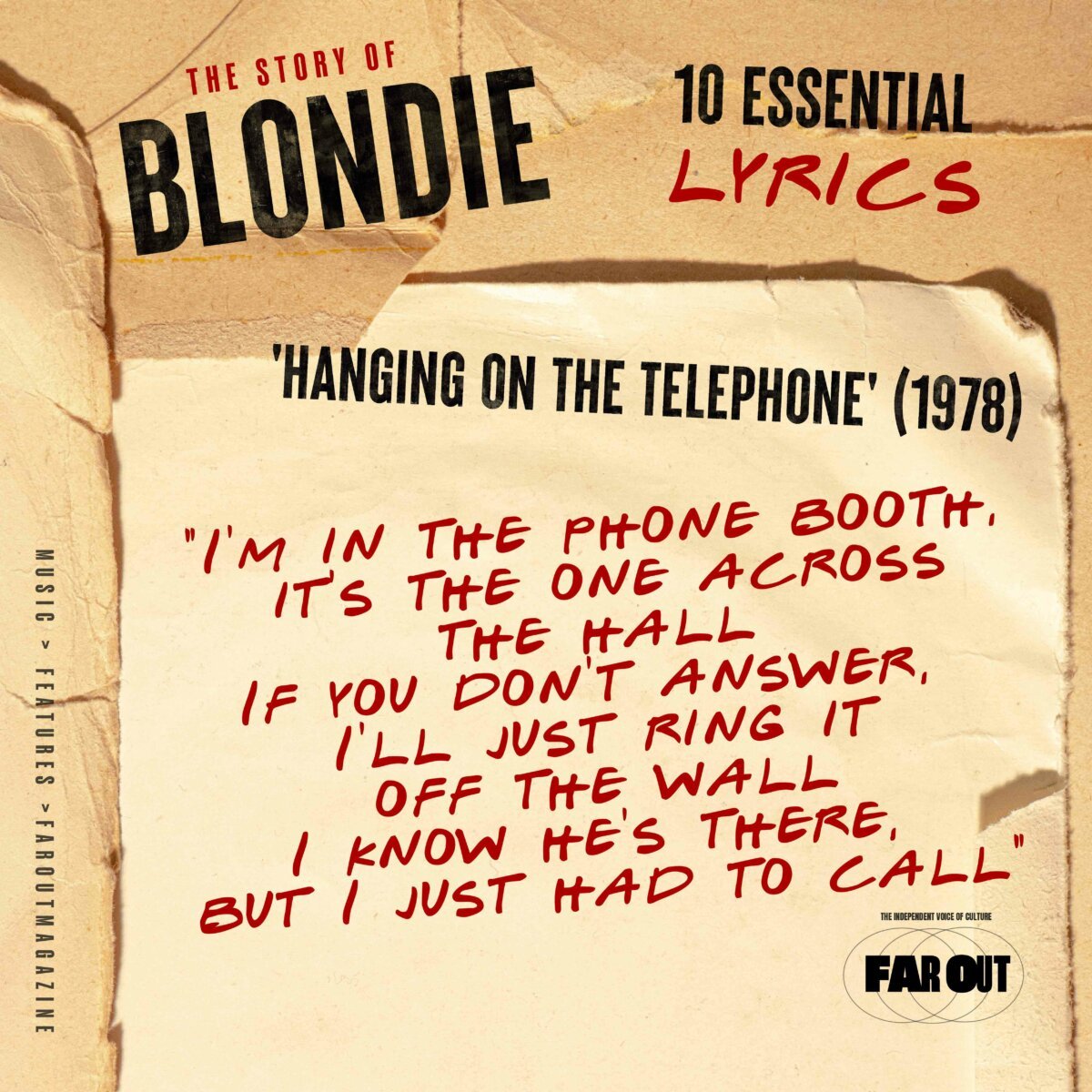
“I’m in the phone booth, it’s the one across the hall
If you don’t answer, I’ll just ring it off the wall
I know he’s there, but I just had to call”.
As critically acclaimed as their first two records were, the folks at Blondie’s record label didn’t have them down as proto-indie darlings. In fairness to them, if you had Debbie Harry on your books, you’d believe you have a megastar on your hands, too. They were given one more shot at mass communication, and it had to be a hit. Fortunately, the band had discovered a little-known power-pop band called The Nerves, and felt that a song of theirs was just the ticket.
They were exactly right. ‘Hanging on the Telephone’ was a massive hit in Europe and laid the groundwork for breaking into the mainstream in their home country. Absolutely fitting for a song about knowing your self-worth and never taking “no” for an answer. It also helps that the band proved (as if it was needed) that after many years tooling along the punk circuit, they could finally rock with the absolute best of them.
‘Heart of Glass’ (1978) 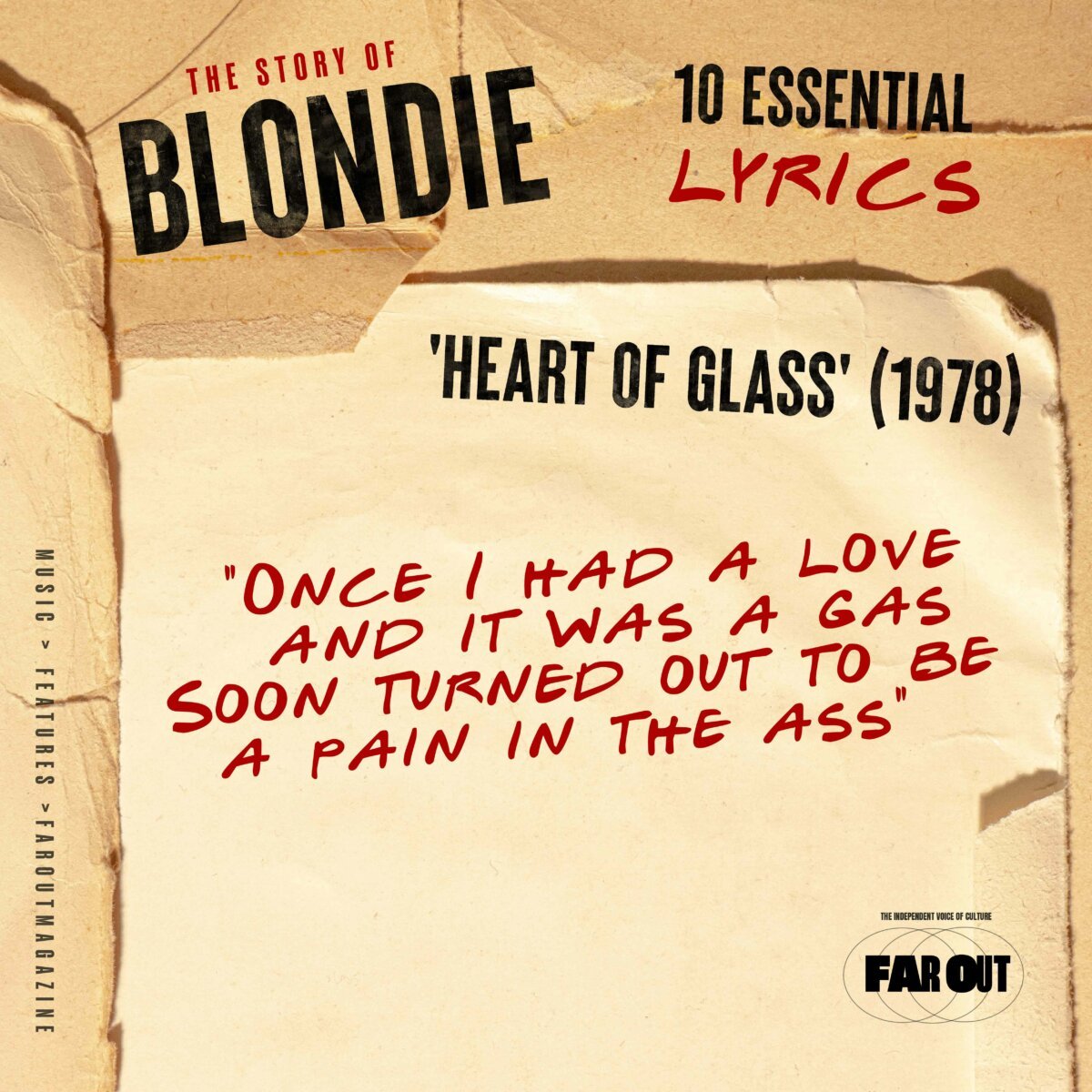
“Once I had a love and it was a gas
Soon turned out to be a pain in the ass”.
As much as ‘Hanging on the Telephone’ was an out-and-out rock barn-burner, the joys of Parallel Lines came from how far the band were willing to push themselves and experiment with new sounds. Living in New York in the late 1970s meant there was no shortage of inspiration, and chief among these was the burgeoning disco movement. After taking a cover of Donna Summer’s ‘I Feel Love’ on the road, the band decided to take a reggae-inflected demo of theirs and rework it to suit the Giorgio Moroder classic.
Crucially, though, this wasn’t an act of role-playing. While the band were playing around with new sounds, the foundation those sounds were built around was totally their voice. Look no further than the utterly charming, utterly NYC denouement to the song that broke them in their home country, ‘Heart of Glass’. Is it a song of heartbreak and romantic disillusionment? Sure. Does it deserve floral language and bad poetry? Nah. Call a spade a spade, because it’s just a “pain in the ass”.
‘One Way or Another’ (1978) 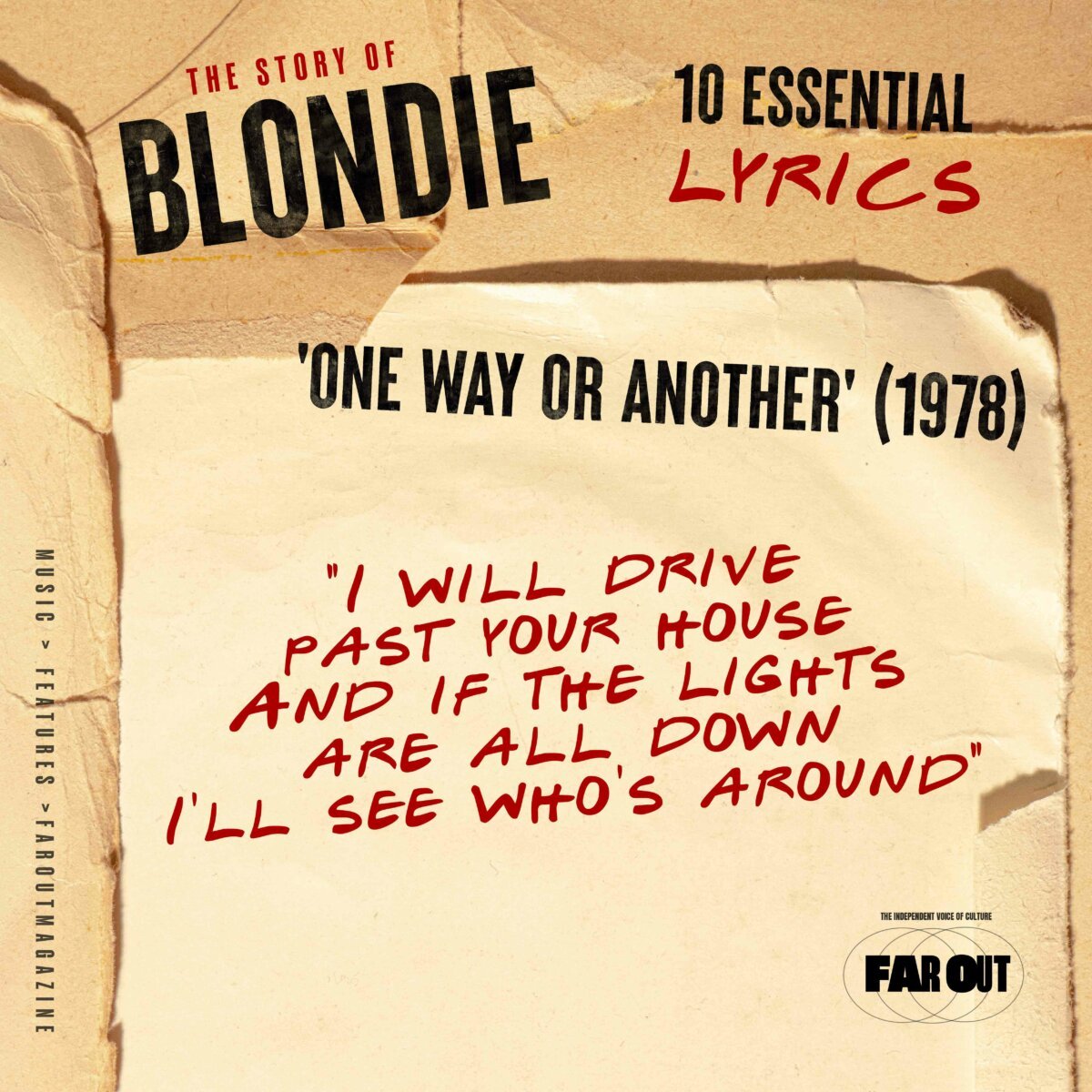
“I will drive past your house
And if the lights are all down
I’ll see who’s around”.
‘Heart of Glass’ wasn’t just a hit. It was a colossal, barnstorming, reputation-defining hit that ended up as one of the biggest songs of the year. On the one hand, you had the record label’s belief in the band, and Debbie Harry in particular, utterly vindicated. On the other, she was one of the country’s most recognisable people. Everyone wanted a piece of her and wouldn’t take no for an answer.
The problem was that, as any woman who’s ever achieved some cred on the indie scene will tell you, that experience is absolutely nothing new. In fact, another single on the same album would come from Harry writing from the perspective of one of her (many) stalkers. ‘One Way or Another’ might be one of the band’s most beloved songs, but there’s a dark, dark heart to it. The irony of it being released when the band were at their most famous is a bitter one indeed.
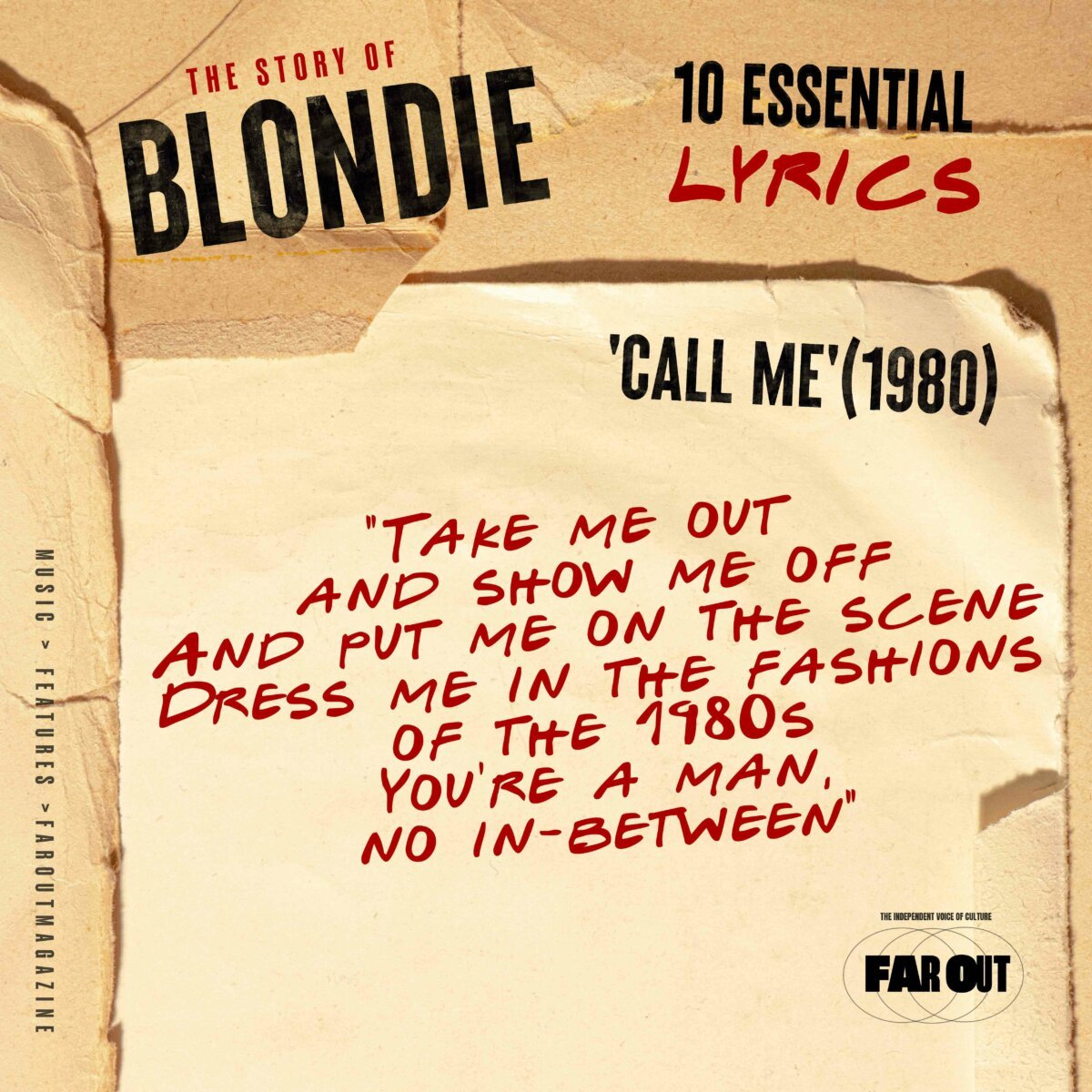
“Take me out and show me off
And put me on the scene
Dress me in the fashions of the 1980s
You’re a man, no in-between”.
After the band had spent almost the entire promotional cycle for Parallel Lines waxing lyrical about the work of disco godhead Giorgio Moroder, it turned out the man himself was also a huge fan of the band. When he was tapped up to write the soundtrack to the Paul Schrader neo-noir classic American Gigolo, he, in turn, went to Harry to front the lead single.
‘Call Me’ was yet another colossal hit, but one that signified the beginning of inter-band tensions that would spell the end of them barely two years later. Harry was adamant when she was brought on that the band would join her, and the song is credited to Blondie. However, none of the band played on the record or received any of the royalties for it, since it was written by Harry and Moroder. For all their talk about Blondie being a group, Harry’s actions were beginning to prove that wrong.
‘The Tide Is High’ (1980) 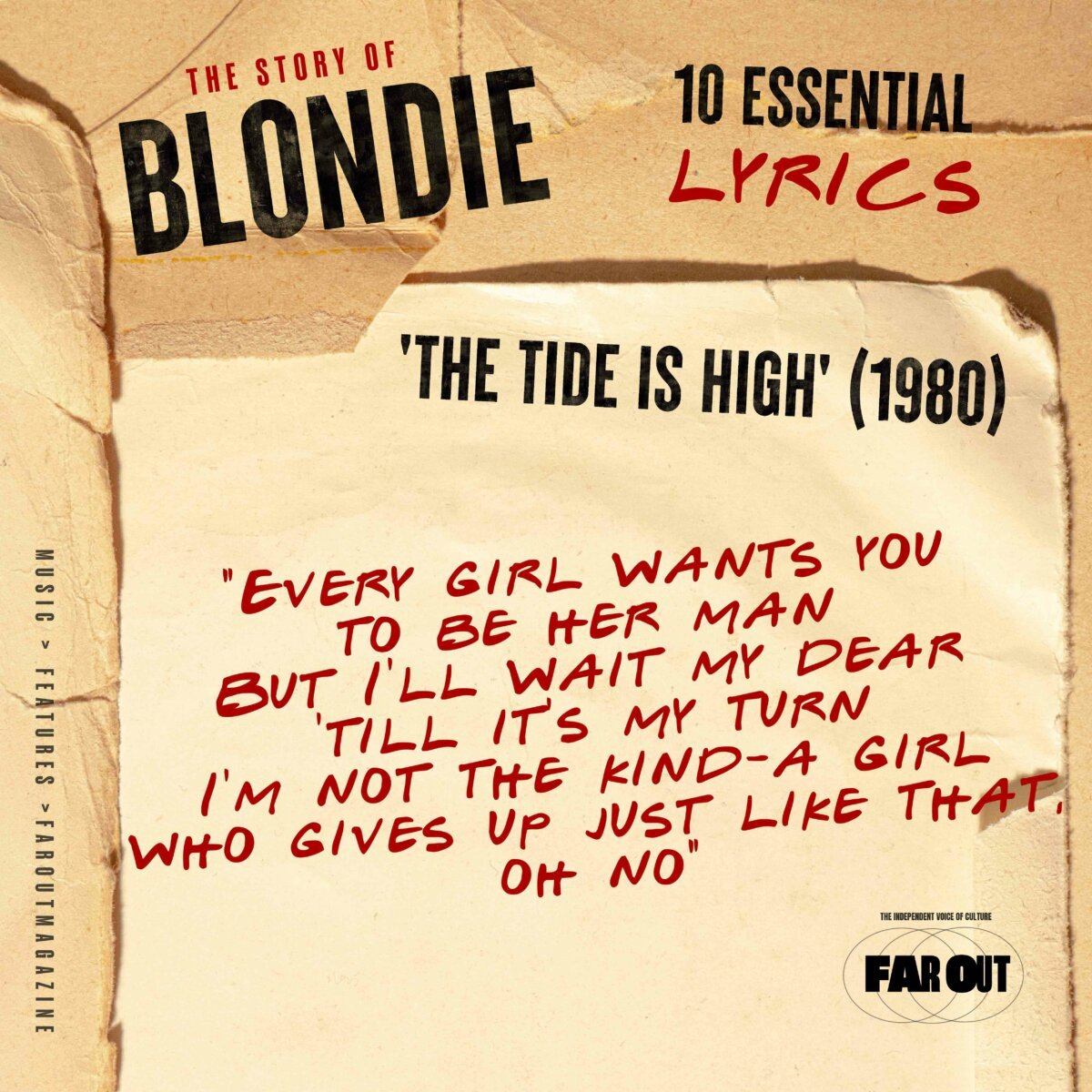
“Every girl wants you to be her man
But I’ll wait my dear ’till it’s my turn
I’m not the kind-a girl who gives up just like that, oh no”.
At that moment, though, the conflict within the band wasn’t getting in the way of their momentum. They were still one of the biggest bands in the world and willing to take big swings with their music. Case in point, remember earlier when I mentioned that ‘Heart of Glass‘ began as a reggae song? Well, the band never gave up on the idea of releasing one and after discovering a long-forgotten rocksteady song by The Paragons, they found just the right track.
‘The Tide Is High’ was, yet again, an absolutely mammoth hit on both sides of the Atlantic. Not only that, but it was also a coded message about the state of the band. The inter-band relations were at an all-time low, and the conflict with their label never stopped. If anything, they intensified when success came along. However, they “were holding on”, at least, for now.
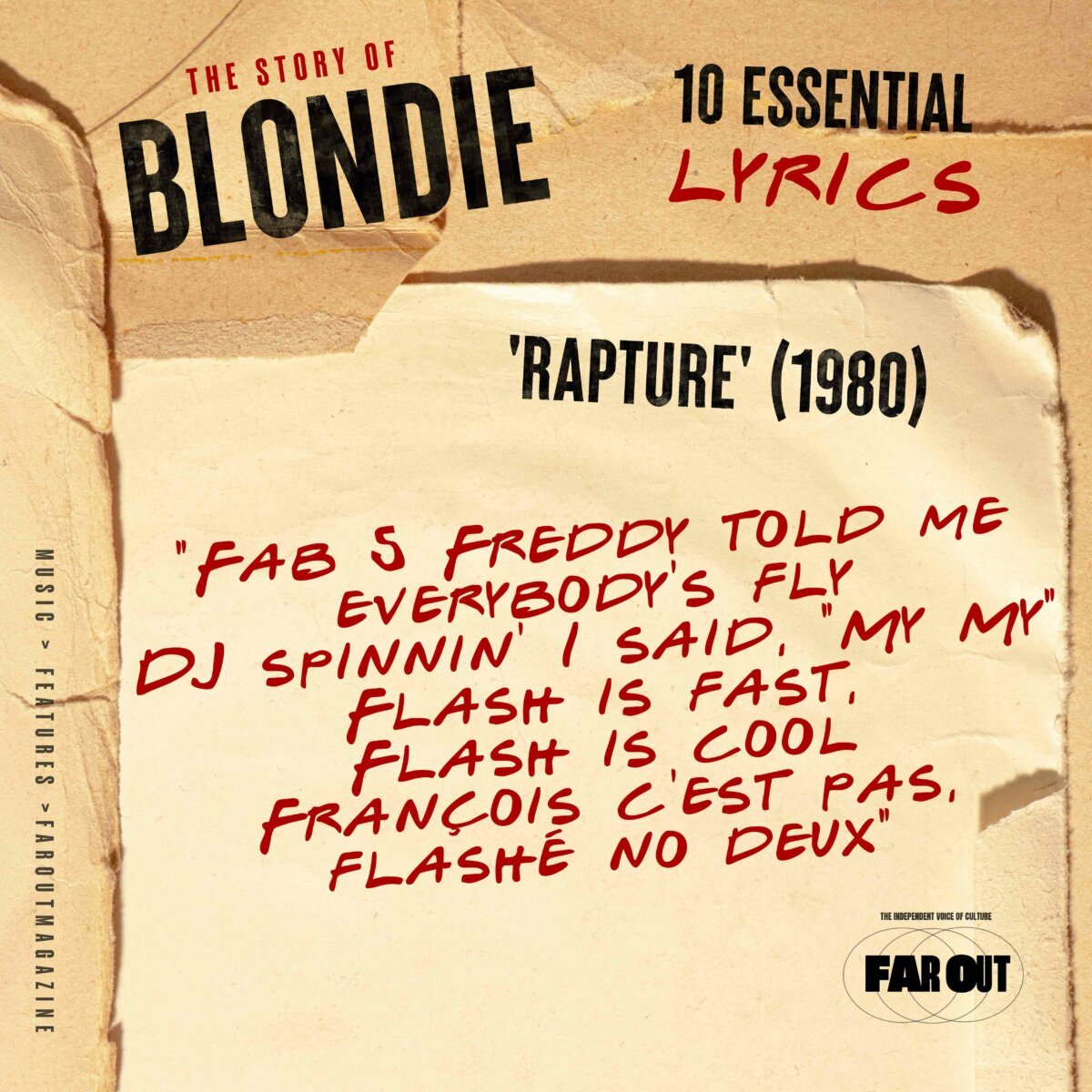
“Fab 5 Freddy told me everybody’s fly
DJ spinnin’ I said, ‘My My’
Flash is fast, Flash is cool
François c’est pas, flashé no deux”.
Here, we get to arguably the most controversial song Blondie ever recorded. One that can cause fistfights if asked at the wrong indie night. The question we’re all asking goes thus: “Is ‘Rapture’ good?” Conceptually, I think it is. It’s absolutely brave and, like ‘Heart of Glass’ before it, there’s enough of the band’s authentic identity in it to make it honest. It’s genuine too, with Harry dropping a tribute to ‘Grandmaster Flash’ in the lyrics of the song he inspired.
Notice how I’m carefully stepping around the question of whether the song is actually good. However, I do think the problems come from time. Upon release, it was Blondie sitting on the cutting edge of popular music yet again; a huge hit and a co-sign to the idea that hip-hop was much, much more than a passing fad. Let’s be real though, as much as we love Debbie Harry in this house, it’s a bit “Auntie Debs had a few too many at karaoke night”, isn’t it?
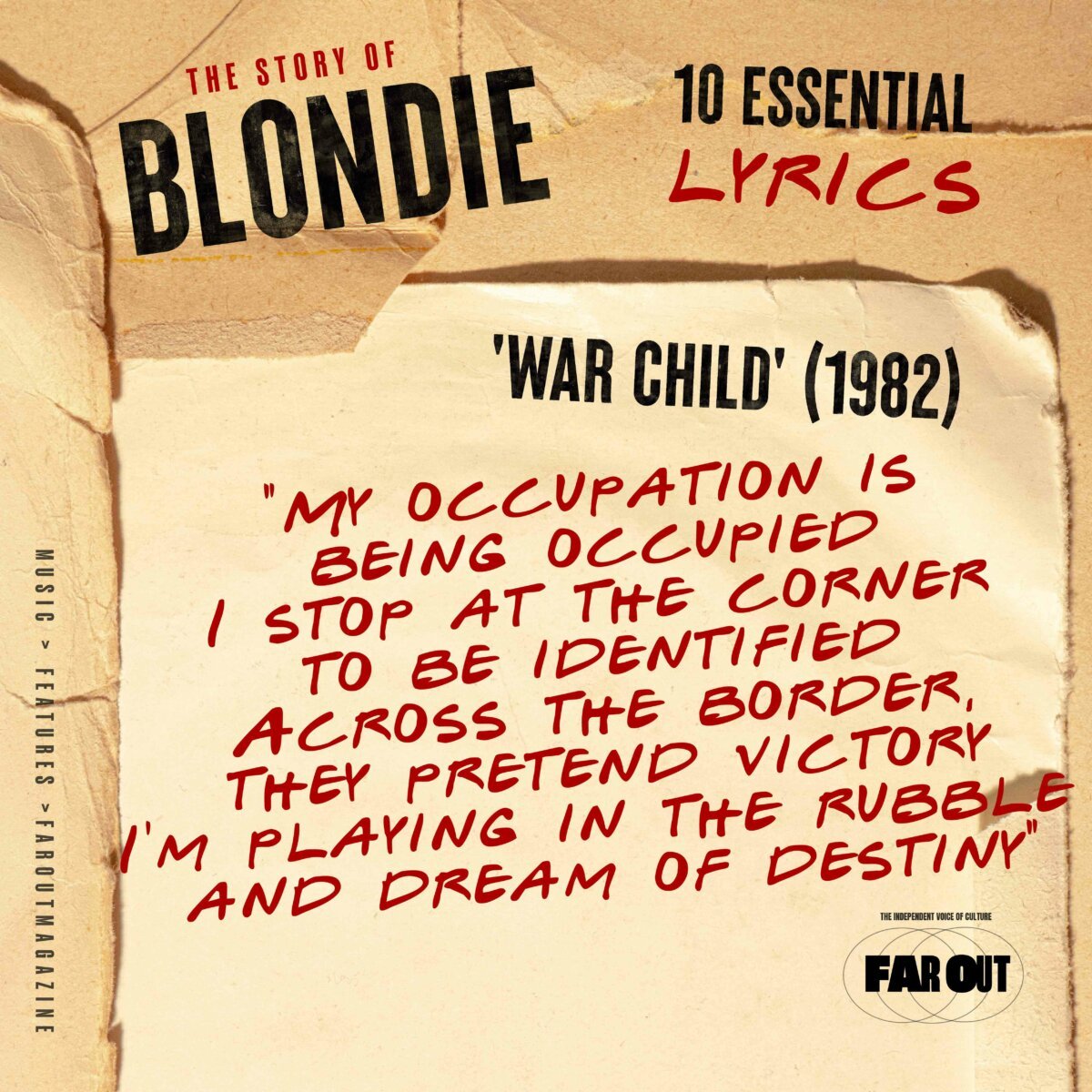
“My occupation is being occupied
I stop at the corner to be identified
Across the border, they pretend victory
I’m playing in the rubble and dream of destiny”.
There are career killers and then there’s The Hunter. Just one look at its absolutely hysterical cover art should tell you exactly what we’re in for, and behind the scenes weren’t much better, and not just because of the standard rock band reasons either. The health problems Chris Stein would spend almost the entire mid-1980s battling (with Harry by his side, heartwarmingly) were beginning to become an unignorable problem.
Above all, though, after so much time spent pushing the boundaries of a rock band, Blondie were out of ideas. Critically, they tried to turn their search for inspiration into a concept album, but music about feeling jaded and uninspired often sounds, sing it with me now, jaded and uninspired. The album was critically and commercially cataclysmic, and the band were done within six months of its release.
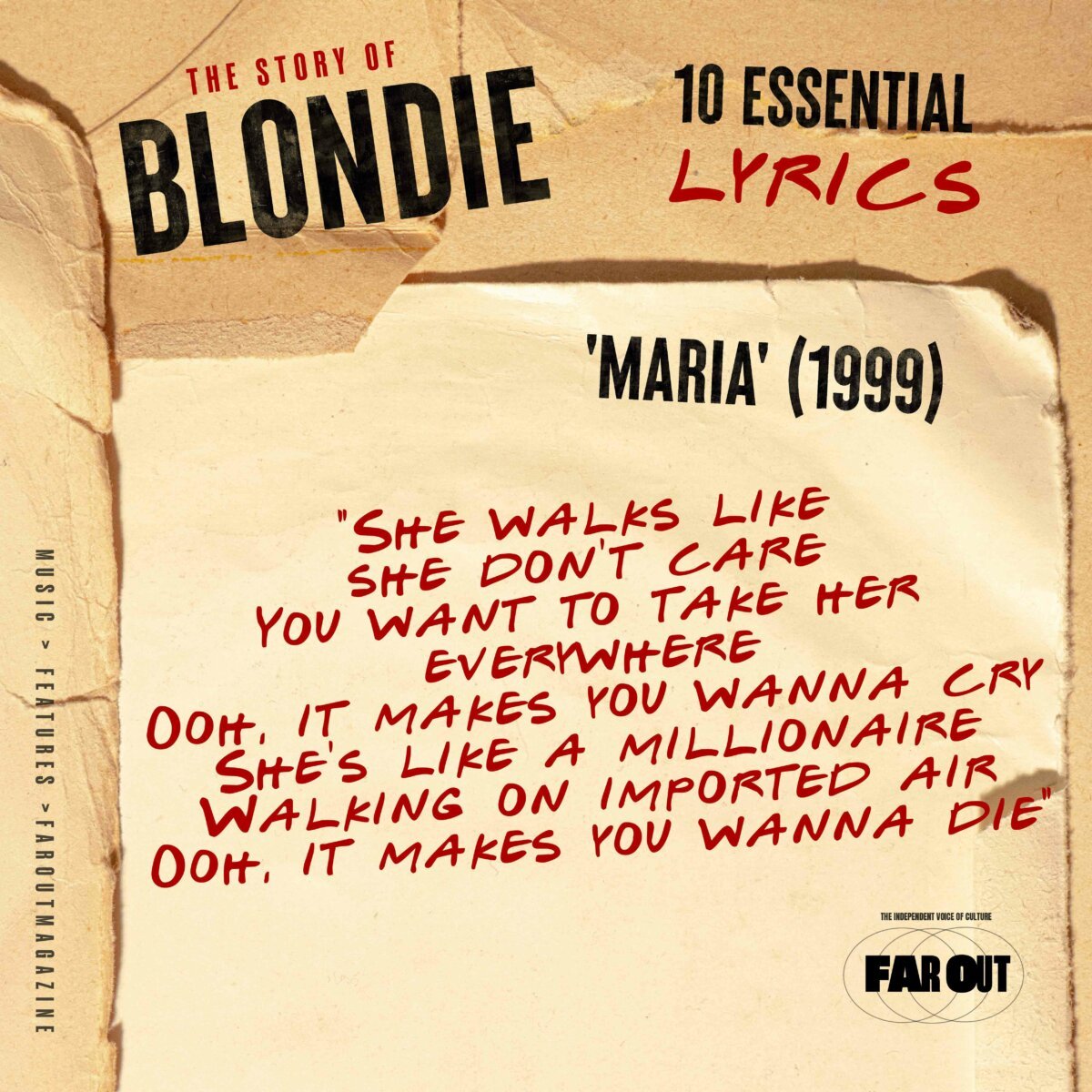
“She walks like she don’t care
You want to take her everywhere
Ooh, it makes you wanna cry
She’s like a millionaire
Walking on imported air
Ooh, it makes you wanna die”.
Fortunately, the story of Blondie the group (which they’ve always been) does have a happy ending. The 1990s saw a new generation of bands like Elastica, Garbage and No Doubt who worshipped at the church of Debbie. Inspired by this, the band got back together in 1997 and, two years later, had a new album ready. After such commercial hits and misses, it really could have gone either way, but No Exit was something of a triumph, and for proof, look no further than its lead single.
Written by keyboardist Jimmy Destri, ‘Maria’ is a breezy power-pop banger that could have come straight off Parallel Lines. What’s more, it was a full-on number one hit in the UK, making the band only the second act to have a number one hit in the 1970s, 1980s and 1990s. Blondie have remained a group ever since, touring and releasing new music to this very day as respected godparents of indie rock as a whole, a position they richly deserve.
